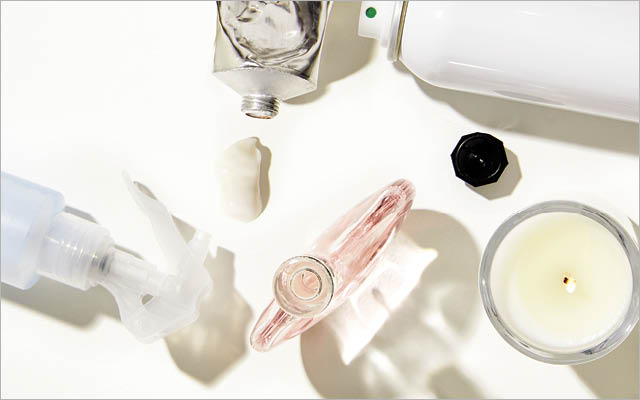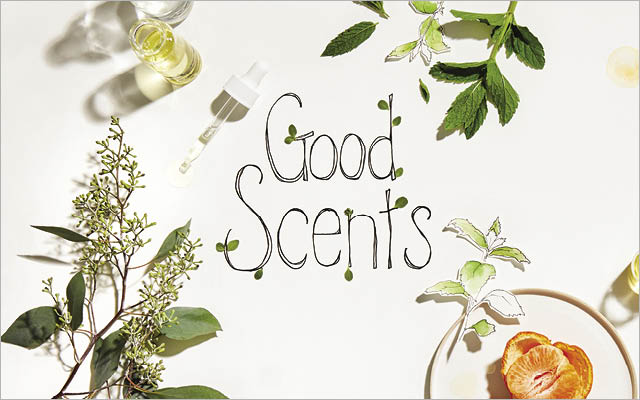Not all scents are created equal. Aromatic plants’ essential oils differ significantly from fragrances cooked up in laboratories. In fact, most synthetic scents are harmful to your health. That’s important information because so many everyday brands contain them: laundry and dish soaps, healthcare and body-care products, cleaning compounds, and your cubicle-mate’s perfume, to name just a few.
“The word ‘aromatherapy’ is misleading because it is not just about fragrance,” says aromatherapist Valerie Bennis. “True aromatherapy always involves plants.”
Exposure to synthetic fragrances can be a giant headache, often literally. One in three people reported health problems — including migraines and respiratory issues — when exposed to scented consumer products, according to one study. Fifteen percent of those surveyed reported losing workdays because of exposure to synthetic fragrances in the workplace, and 20 percent said they leave businesses faster if they smell an air freshener or other fragranced product. (For more on this, see “The Problem With Perfume”.)
Whether you notice immediate symptoms or not, your body is absorbing the volatile organic compounds (VOCs) emitted by synthetic fragrances. A review of 37 scented consumer products (including cleaning supplies, air fresheners, and personal-care products) found that, collectively, they contained 156 VOCs, 42 of which are classified as toxic or hazardous under U.S. law. Every one of the products contained at least one toxic VOC.
Unfortunately, reading labels closely won’t help you: The FDA doesn’t require manufacturers to disclose the source of a product’s signature scent — these ingredients are protected as a trade secret. So you may find “fragrance” or “perfume” on a label, but this is a stand-in for what is typically a mix of dozens of potentially hazardous chemicals.
To reduce the impact of synthetic scents on your health, avoid products with “fragrance” or “perfume” on the label. And know that products labeled “unscented” often use masking fragrances. You’re best off sticking to products with simple ingredient lists.
If you’re going to use a scented product, search for “plant-based” or “essential-oil fragrance.” These products are more expensive to manufacture, so companies will typically highlight their extra efforts on the label.
It’s easy to make many household products yourself — from all-purpose cleaners to body oils — and you can always add a few drops of your favorite essential oil to make them more enjoyable to use. (For recipes, see “Make Your Own Spring-Cleaning Kit”.)
Finally, trust your nose: If a scent in a manufactured product knocks you flat, it’s probably synthetic. Plant-based scents simply aren’t as strong.




This Post Has 0 Comments